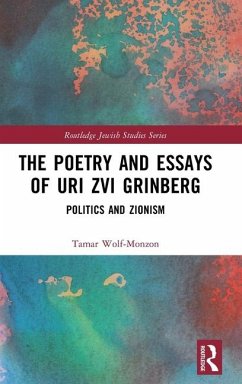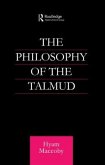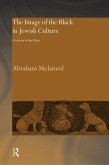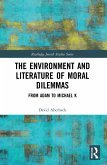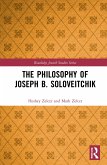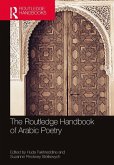This book focuses on the complex network of relationships between the poet Uri Zvi Grinberg and the Labor Movement in Mandate Palestine from 1923 to 1937.
Making use of letters found in the Uri Zvi Grinberg Archive at the National Library of Israel (NLI), the author reconstructs the characteristics of Grinberg's pioneer readership, attesting to their special relationship with his poetry. In the 1920s, it is argued, they considered Grinberg's poetry an authentic expression of their complex spiritual world and especially of the reality of their lives. On his side, Grinberg accepted the pioneering ethos as the ideological basis of his works, becoming an outstanding poet of the Labor Movement. The chapters of this book track the various phases of Grinberg's life and poetry, from his emigration to Palestine through to the 1930s, when he joined the Revisionist Movement and became increasingly ostracized from the Labor Movement. The story of Grinberg's relations with the pioneers was emotionally charged-a mixture of enchantment and rejection, spiritual closeness and repulsion. Ultimately, this book analyzes the intensity of this connection and its many contradictory layers.
This book will interest researchers in a range of fields, including Hebrew poetry and reception theory, as well as anyone interested in Israeli studies and the history of the Labor Movement in Palestine.
Making use of letters found in the Uri Zvi Grinberg Archive at the National Library of Israel (NLI), the author reconstructs the characteristics of Grinberg's pioneer readership, attesting to their special relationship with his poetry. In the 1920s, it is argued, they considered Grinberg's poetry an authentic expression of their complex spiritual world and especially of the reality of their lives. On his side, Grinberg accepted the pioneering ethos as the ideological basis of his works, becoming an outstanding poet of the Labor Movement. The chapters of this book track the various phases of Grinberg's life and poetry, from his emigration to Palestine through to the 1930s, when he joined the Revisionist Movement and became increasingly ostracized from the Labor Movement. The story of Grinberg's relations with the pioneers was emotionally charged-a mixture of enchantment and rejection, spiritual closeness and repulsion. Ultimately, this book analyzes the intensity of this connection and its many contradictory layers.
This book will interest researchers in a range of fields, including Hebrew poetry and reception theory, as well as anyone interested in Israeli studies and the history of the Labor Movement in Palestine.
"A fascinating study of one of the greatest figures in Modern Hebrew literature, this book has been long waited for. With her remarkable intimate knowledge of Grinberg's work, Wolf-Monzon's study is an extraordinary contribution to the field of Modern Hebrew literature."
Neta Stahl, Associate Professor of Modern Hebrew Literature, Johns Hopkins University, United States
Neta Stahl, Associate Professor of Modern Hebrew Literature, Johns Hopkins University, United States

